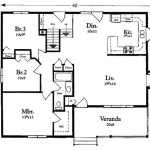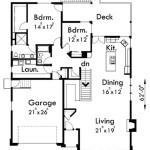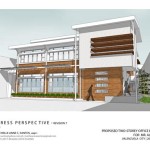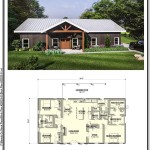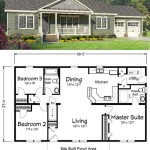Who Can Draw Up House Plans? A Comprehensive Guide
The process of designing a house involves translating abstract ideas and needs into detailed, actionable plans. These plans, often referred to as house plans, blueprints, or construction documents, are crucial for obtaining building permits, securing financing, and guiding the construction process. Understanding who is qualified and authorized to create these plans is essential for any homeowner embarking on a new construction or significant renovation project. The range of professionals capable of drawing up house plans spans from licensed architects to experienced building designers and even, in some limited circumstances, the homeowners themselves. The specific requirements and qualifications vary depending on local regulations, the complexity of the project, and the desired level of professional expertise.
Selecting the appropriate professional for drawing up house plans requires careful consideration of several factors, including the project's scope, budget, and personal preferences. Each option presents its own set of advantages and disadvantages, impacting the overall cost, design creativity, and compliance with building codes. This article aims to provide a comprehensive overview of the individuals and professionals qualified to draw up house plans, outlining their respective roles, responsibilities, and the factors that influence the selection process.
Architects: The Licensed Professionals
Architects are highly trained and licensed professionals with extensive knowledge of design principles, building codes, structural engineering, and project management. They possess a comprehensive understanding of the entire building process, from initial concept development to final construction. The licensing process for architects typically involves completing a professional degree in architecture, gaining practical experience through an internship, and passing a rigorous examination administered by a state or national licensing board.
The primary advantage of hiring an architect is their holistic approach to design. Architects consider not only the aesthetic aspects of a building but also its functionality, sustainability, and integration with the surrounding environment. They are skilled at translating a client's vision into a cohesive and well-defined plan that meets their specific needs and desires. Architects are trained to navigate complex regulations and building codes, ensuring that the final design complies with all applicable requirements.
Architects are also adept at coordinating with other consultants, such as structural engineers, mechanical engineers, and landscape architects, to ensure that all aspects of the project are properly integrated. Their expertise in project management can help homeowners navigate the often-complex construction process, ensuring that the project stays on schedule and within budget. However, architect fees are typically higher than those of other design professionals, reflecting their extensive training and experience. This can be a significant factor for homeowners with limited budgets.
The scope of an architect's services can vary depending on the project and the client's needs. Some architects offer full-service design, which includes everything from initial concept development to construction administration. Others may offer more limited services, such as schematic design or construction documentation. It is essential to clearly define the scope of services in a contract to avoid misunderstandings and ensure that the architect's services meet the client's specific needs.
When selecting an architect, it is crucial to review their portfolio, check their references, and interview them to determine if they are a good fit for the project. Look for an architect who has experience with similar projects and who is willing to listen to your ideas and concerns. A good architect should be able to communicate effectively, provide creative solutions, and guide you through the entire design and construction process.
Building Designers: Experience and Practicality
Building designers, sometimes referred to as residential designers or architectural designers, are professionals who specialize in the design of residential buildings. While they may not hold the same formal education or licensing as architects, they often possess extensive experience in the field and a strong understanding of building codes and construction practices. The qualifications and regulations for building designers vary depending on the state or local jurisdiction.
Building designers typically focus on the practical aspects of design, ensuring that the plans are buildable, cost-effective, and meet the client's specific needs. They often have a strong understanding of local building codes and construction methods, which can be particularly valuable for homeowners who are looking for a pragmatic and efficient design solution. Building designers often offer a more affordable alternative to architects, making them an attractive option for homeowners with budget constraints.
However, it is essential to carefully vet building designers to ensure that they possess the necessary skills and experience to handle the project. Check their portfolio, review their references, and inquire about their knowledge of local building codes and regulations. It is also important to ensure that they are insured and bonded to protect you from liability in case of errors or omissions.
Building designers can provide a range of services, from initial concept development to construction documentation. Some building designers may also offer construction administration services, while others may focus primarily on the design phase. Clearly define the scope of services in a contract to ensure that the building designer's services meet your specific needs and expectations.
The primary difference between architects and building designers often lies in their design philosophy and training. Architects tend to emphasize a more holistic and artistic approach to design, while building designers focus on the practical and functional aspects of the building. The choice between an architect and a building designer ultimately depends on the homeowner's priorities and preferences. If you are looking for a highly creative and innovative design, an architect may be the best choice. If you are looking for a practical and cost-effective design solution, a building designer may be a better fit.
Homeowners: When DIY is Possible
In some limited circumstances, homeowners may be permitted to draw up their own house plans. This is typically only allowed for small, simple projects, such as additions or renovations that do not involve significant structural changes. The specific regulations vary depending on the local building codes and permitting requirements. It is crucial to thoroughly research the local regulations before attempting to draw up your own house plans.
The primary advantage of drawing up your own house plans is the cost savings. However, this option requires a significant investment of time and effort, as well as a thorough understanding of building codes, construction practices, and drafting techniques. Homeowners who attempt to draw up their own house plans should be prepared to invest significant time learning the necessary skills and knowledge.
Even if you are permitted to draw up your own house plans, it is often advisable to consult with a qualified professional, such as an architect or building designer, to review your plans and ensure that they comply with all applicable regulations. A professional review can help identify potential problems and prevent costly mistakes during construction.
Furthermore, many lenders and insurance companies require professionally drafted plans for financing and insurance purposes. Therefore, even if you are capable of drawing up your own plans, you may still need to hire a professional to create a more formal set of construction documents.
Drawing up your own house plans can be a rewarding experience, but it is essential to be realistic about your skills and limitations. If you lack the necessary knowledge and experience, it is best to hire a qualified professional to ensure that your project is successful and complies with all applicable regulations.

Floor Plan Creator And Designer Free Easy App

House Plans How To Design Your Home Plan

House Plans How To Design Your Home Plan

Home Design Your House

Small House Plans Popular Designs Layouts

House Plans How To Design Your Home Plan

House Plans How To Design Your Home Plan

Home Design Your House

20 Best Floor Plan Apps To Create Your Plans Foyr

Small House Plans Popular Designs Layouts

